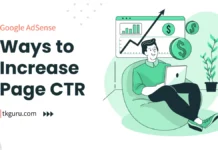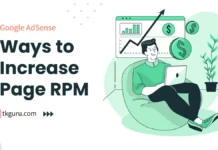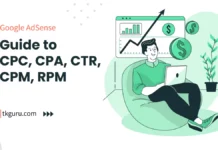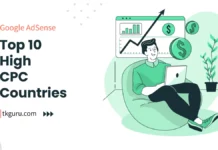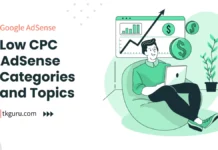Advertisements
Ratings
“Can I add others YouTube videos on my website?
Can I publish copyrighted material on my website?
Can I add software to free download on my website?
You all must have this kind of questions in your mind.
Below article will solve this puzzle of yours. Just take a look.”
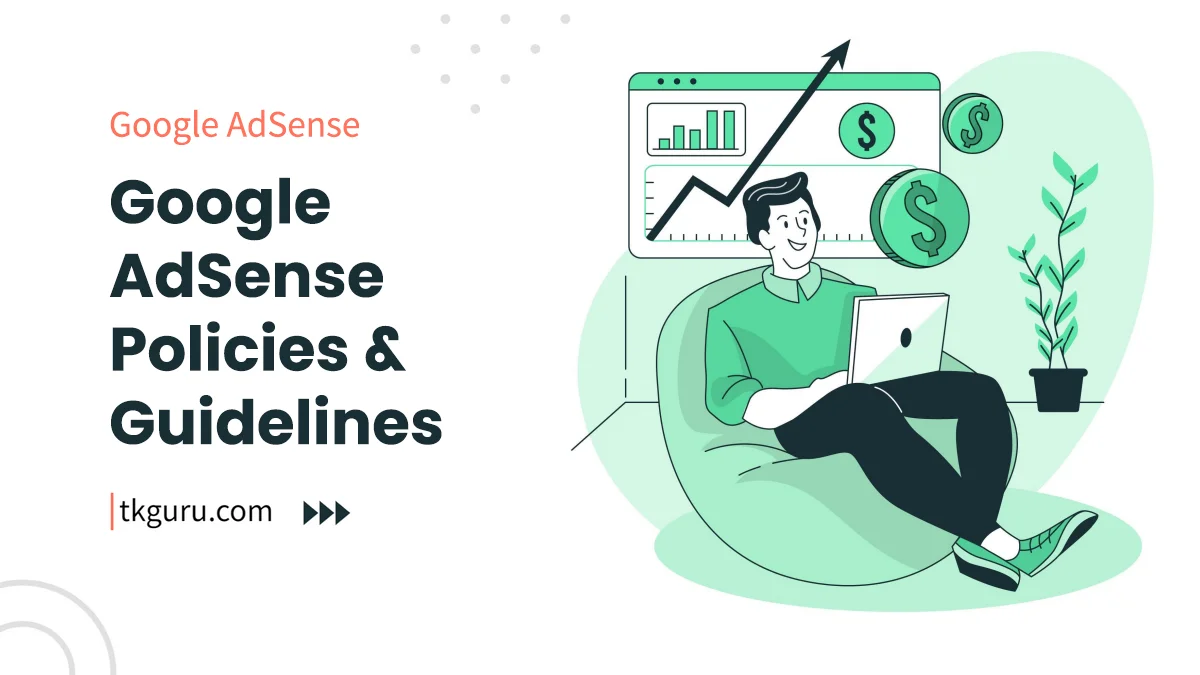
AdSense Policies and Guidelines – In the world of online advertising, Google AdSense stands as a gateway for website owners and content creators to monetize their digital assets.
As publishers seek to capitalize on this revenue stream, it’s imperative to comprehend and adhere to the underlying AdSense policies and guidelines.
These policies serve as the bedrock of a sustainable and profitable AdSense experience, ensuring that the ecosystem remains transparent, trustworthy, and user-centric.
In this comprehensive guide, we’ll delve into the intricacies of AdSense policies and guidelines.
From dissecting key policies to exploring the implications of non-compliance, we’ll equip you with the knowledge and tools needed to navigate the realm of online advertising responsibly.
Let’s embark on a journey to uncover the foundation of AdSense policies and their role in shaping a successful monetization strategy.
Contents
- 1. The Foundation of AdSense Policies
- 2. Key AdSense Policies Explained
- 3. Implications of Violating Policies
- 4. Navigating the Policy Center
- 5. How to Ensure Compliance
- 6. Staying Updated with Policy Changes
- 7. Tips for Policy-Friendly Monetization
- 8. Addressing Common Misconceptions
- Conclusion
- Google AdSense Site Content Policy FAQs
1. The Foundation of AdSense Policies
AdSense policies serve as the linchpin that holds together the intricate web of advertisers, publishers, and users in the digital advertising landscape.
They are not arbitrary rules; rather, they are carefully crafted to maintain ad quality, relevance, and the overall user experience.
Google’s commitment to maintaining a healthy online environment translates into these policies, which help ensure that ads are trustworthy, non-intrusive, and aligned with legal and industry standards.
At its core, AdSense policies function as a bridge between the interests of advertisers and the expectations of users.
They establish a set of ethical guidelines that regulate how ads are displayed, ensuring that user trust is upheld, and that advertisers receive a platform where their message can reach the right audience.
These policies enable a harmonious coexistence between monetization efforts and user satisfaction.
2. Key AdSense Policies Explained
2.1 Prohibited Content
AdSense policies explicitly outline the types of content that are prohibited within the program.
These restrictions exist to safeguard user experiences and maintain the integrity of the advertising ecosystem. The following categories of content are generally prohibited:
- Adult Content: Content that contains explicit material, nudity, or sexual content.
- Hate Speech: Content that promotes hate, discrimination, or violence against individuals or groups based on attributes such as race, ethnicity, religion, etc.
- Violence and Harm: Content that glorifies violence, self-harm, or encourages harm to others.
- Misinformation: Content that spreads false or misleading information.
- Copyright Violations: Content that infringes on copyrighted material without proper authorization.
Table 1: Prohibited Content Examples
| Content Category | Examples |
|---|---|
| Adult Content | Explicit images, adult videos |
| Hate Speech | Racist slurs, discriminatory language |
| Violence and Harm | Graphic violence, self-harm content |
| Misinformation | False medical advice, conspiracy theories |
| Copyright Violations | Unauthorized use of copyrighted music |
Publishers must meticulously review their content to ensure it aligns with these guidelines. Failure to do so can result in ad serving restrictions or account suspension.
2.2 Copyright and Intellectual Property
AdSense emphasizes respecting intellectual property rights, including copyright. Publishers must ensure that the content they display complies with copyright laws and does not infringe on the rights of others.
This includes text, images, videos, and any other creative work that might be subject to copyright protection.
To avoid copyright issues, it’s crucial to:
- Use content that you have the legal right to use or that falls under fair use.
- Obtain proper permissions for any copyrighted material you wish to use.
- Refrain from using copyrighted material in a way that might mislead users into thinking it’s original.
AdSense policies strive to maintain a fair and ethical environment for all creators and rights holders, fostering a balanced and respectful digital ecosystem.
2.3 Ad Placement Policies
Strategically placing ads is an art that requires balancing monetization goals with user experience.
AdSense has established policies to guide publishers in this endeavor, ensuring that ads enhance the content rather than disrupt it. Some key ad placement guidelines include:
- Above-the-Fold: Ads should be visible without users needing to scroll down the page.
- Content Integration: Ads should seamlessly blend with the content, avoiding confusion between ads and actual content.
- Interstitial Pages: Publishers should refrain from displaying ads as interstitials before users can access the main content.
- Floating and Overlapping Ads: Ads should not float over the main content or obstruct users’ ability to access the content.
Table 2: Ad Placement Guidelines
| Guideline | Description |
|---|---|
| Above-the-Fold | Ensure ads are visible upon page load. |
| Content Integration | Blend ads naturally with the content. |
| Interstitial Pages | Avoid displaying ads before main content. |
| Floating and Overlapping Ads | Prevent ads from obstructing content. |
These guidelines serve to strike a balance between revenue generation and user engagement, promoting an environment where ads enhance rather than hinder user interactions.
2.4 Ad Behavior Policies
AdSense policies extend to the behavior and functionality of ads themselves. The goal is to ensure that ads are presented in a clear and ethical manner, providing value to users while maintaining transparency. Some key ad behavior policies include:
- Mimicking Content: Ads should not be designed in a way that makes them indistinguishable from the actual content.
- Misleading Language: Ad text should accurately represent the product or service being promoted.
- Autoplay Multimedia: Audio or video ads should not automatically play without user interaction.
- Pop-ups and Pop-unders: Ads should not disrupt user navigation by using pop-up or pop-under formats.
Table 3: Ad Behavior Policies
| Guideline | Description |
|---|---|
| Mimicking Content | Ensure ads are clearly differentiated from content. |
| Misleading Language | Ad text should accurately represent the offer. |
| Autoplay Multimedia | Avoid automatic playback of audio or video. |
| Pop-ups and Pop-unders | Prevent disruptive ad formats. |
By upholding these ad behavior guidelines, publishers contribute to a trustworthy and user-friendly online advertising environment.
2.5 AdSense for Content Policies
Given the diverse range of content across the internet, AdSense policies provide specific guidance for various content types.
These policies ensure that ads are displayed in a context that is appropriate and relevant to the content. For example:
- News Sites: Advertisements should not appear alongside content that covers sensitive topics like tragedy, violence, or conflict.
- Health and Medical Content: Ads should not promote false or unproven health claims.
- Personal Finance Content: Advertisements related to high-risk financial products should be displayed with caution.
Table 4: AdSense for Content Guidelines
| Content Type | AdSense Guidelines |
|---|---|
| News Sites | Prevent ads alongside sensitive topics. |
| Health and Medical Content | Avoid promoting false health claims. |
| Personal Finance Content | Be cautious with high-risk financial ads. |
Understanding these specialized policies ensures that ads are contextually relevant and do not compromise the integrity of the content.
3. Implications of Violating Policies
Adhering to AdSense policies is not merely a matter of compliance; it directly impacts your reputation, revenue, and the overall health of the online advertising ecosystem.
Violating policies can have serious consequences that range from warning notifications to account suspension or termination. Here’s what publishers need to be aware of:
3.1 Gradation of Consequences
Google employs a tiered approach to addressing policy violations, with consequences becoming more severe for repeated or egregious violations. The progression generally follows this path:
- Warnings: For minor policy breaches, you might receive a warning and be given the opportunity to rectify the issue.
- Ad Serving Restrictions: Certain ad types or categories might be restricted from serving on your site until policy compliance is achieved.
- Account Suspension: In severe cases, your AdSense account might be suspended temporarily while you address the violations.
- Account Termination: Repeated or significant violations can lead to permanent account termination, resulting in the loss of monetization opportunities.
3.2 Impact on Revenue and User Trust
Policy violations can disrupt the flow of ads, leading to a decrease in impressions, clicks, and ultimately, your revenue.
Additionally, users might lose trust in your site if they encounter misleading or inappropriate ads.
Maintaining a transparent and trustworthy environment is crucial for long-term success.
Google’s commitment to helping publishers uphold AdSense policies is evident in the Policy Center, a dedicated section within the AdSense dashboard.
The Policy Center serves as a central hub where publishers can access resources, notifications, and guidance related to policies.
4.1 Accessing the Policy Center
- Log in to Your AdSense Account: Access your AdSense account using your credentials.
- Navigate to the Policy Center: From the main dashboard, locate and click on the “Policy Center” tab. Here, you’ll find an overview of policy issues and violations related to your account.
4.2 Exploring Policy Resources
Within the Policy Center, you’ll find a wealth of resources to aid your understanding of policies and their implications:
- Policy Violation Details: Gain insight into specific policy violations and their impact on your account.
- Policy Actions: View the actions Google has taken based on policy violations and the steps you need to take for resolution.
- Policy Resources: Access detailed policy guidelines, best practices, and FAQs to ensure ongoing compliance.
By regularly checking the Policy Center, you can stay informed about any policy-related issues affecting your account and take appropriate actions promptly.
5. How to Ensure Compliance
Ensuring compliance with AdSense policies is a proactive effort that involves constant vigilance, ongoing education, and adherence to ethical standards. Here are steps to help you maintain a policy-compliant environment:
5.1 Regular Checkups
Regularly review your website’s content to ensure it aligns with AdSense policies. As your content evolves, conduct periodic audits to identify any potential violations. Address issues promptly to prevent them from affecting your ad serving.
5.2 Ad Review Process
Google employs a rigorous ad review process to ensure that ads that appear on your site comply with policies.
Advertisements are examined for their content, landing page quality, and overall user experience. This process safeguards the quality and relevance of ads displayed to your audience.
5.3 Communication with Google
If you ever encounter policy violations or receive notifications from Google, respond promptly and engage in open communication.
Google’s support channels are available to guide you through the resolution process and help you understand the steps needed to rectify issues.
6. Staying Updated with Policy Changes
AdSense policies are not static; they evolve to align with industry standards and user expectations.
As a responsible publisher, staying informed about policy updates is essential. Here’s how to remain up-to-date:
6.1 Subscribe to Notifications
Within the Policy Center, you can opt to receive email notifications about policy changes and updates.
Subscribing to these notifications ensures that you’re aware of any modifications that might impact your account.
6.2 Periodic Policy Reviews
Set aside time periodically to review AdSense policies, even if you haven’t received notifications about updates.
Familiarity with policies helps you stay proactive in maintaining compliance and a positive user experience.
7. Tips for Policy-Friendly Monetization
Ensuring policy compliance goes beyond avoiding violations; it’s about fostering a user-centric and ethical approach to monetization. Here are practical tips to enhance your policy-compliant monetization strategy:
7.1 Transparent Disclosures
Clearly indicate the presence of ads on your website to maintain transparency with your audience. Informing users about the presence of ads fosters trust and aligns with ethical advertising practices.
7.2 Balanced Monetization
While revenue generation is a goal, striking a balance between ads and content is crucial. Avoid overwhelming users with excessive ads that hinder their browsing experience.
7.3 User Feedback
Invite user feedback regarding the ads displayed on your site. This helps identify any potential issues with ad relevance or user experience, allowing you to address concerns promptly.
8. Addressing Common Misconceptions
Navigating AdSense policies can sometimes be accompanied by misconceptions or misunderstandings. Here, we address some common misconceptions and provide accurate information:
8.1 “I Can Trick the System”
Some publishers might believe they can deceive the system by employing tactics to bypass policies.
It’s important to understand that Google employs advanced technology and manual reviews to ensure policy compliance. Attempting to manipulate the system can lead to severe consequences.
8.2 “Policies Are Too Restrictive”
While AdSense policies have specific guidelines, they are designed to strike a balance between monetization and user experience. Policies help maintain a trustworthy environment for users and advertisers alike.
8.3 “Minor Violations Don’t Matter”
Even minor policy violations can have consequences. Ignoring or downplaying policy breaches can result in account restrictions or suspension. It’s essential to address violations promptly, regardless of their perceived severity.
Conclusion
Understanding AdSense policies and guidelines is a fundamental aspect of responsible online advertising.
As you navigate the dynamic landscape of digital monetization, remember that adherence to policies not only safeguards your revenue but also contributes to a positive user experience and a thriving online ecosystem.
By comprehending the foundation of AdSense policies, grasping the implications of policy violations, and proactively ensuring compliance, you empower yourself to create a sustainable and ethical monetization strategy.
Upholding the integrity of AdSense policies benefits both publishers and users, fostering a climate of trust, transparency, and mutual respect.
As you embark on your journey to monetize through AdSense, embrace these principles to create a rewarding, user-centric, and policy-compliant online presence.
By doing so, you position yourself for success in the world of digital advertising while contributing to the vitality of the broader online community.
Google AdSense Site Content Policy FAQs
Google AdSense Site Content Policy is a set of guidelines that website owners must follow to display Google ads on their website. The policy includes guidelines for content that is prohibited or restricted from displaying ads, such as illegal or inappropriate content, adult content, and content that promotes hate speech or violence.
Google AdSense prohibits displaying ads on websites that contain illegal content, adult content, violent content, hate speech, and content that promotes illegal activities or infringes on intellectual property rights. Websites that promote gambling, tobacco, or alcohol are also prohibited from displaying Google ads.
No, Google AdSense prohibits displaying ads on websites that infringe on intellectual property rights, including copyrighted content. You must have the legal right to use and display any content on your website if you want to display Google ads.
If your website violates Google AdSense Site Content Policy, your account may be suspended or terminated, and you may no longer be able to display Google ads on your website. You may also be subject to legal action if your website contains illegal content.
To ensure that your website complies with Google AdSense Site Content Policy, you should carefully review the policy and make any necessary changes to your website to ensure that it does not contain prohibited content. You should also regularly review your website to ensure that it remains in compliance with the policy.
Yes, Google ads may not be placed on such content of website. It is a violation of Google copyright policy.
Yes, Google ads may not be placed on pages that contain pornography, adult, or mature content. It is a violation of Google copyright policy.
Yes, Google ads may not be placed on pages which contain software download or serial number Information without the authorization of software owner. It is a violation of Google copyright policy.
No,
Yes, Publishers are responsible for all the materials available on their website either it is generated by themselves or by others. What is Google AdSense Site Content Policy?
What types of content are prohibited by Google AdSense?
Can I display Google ads on a website with copyrighted content?
What happens if my website violates Google AdSense Site Content Policy?
How can I ensure that my website complies with Google AdSense Site Content Policy?
If I publish copyrighted material on my website. Is it a violation of Google copyright policy?
If a page on my website contain adult website name and link. Is it a violation of Google copyright policy?
If a page on my website contain software download or serial number Information. Is it a violation of Google copyright policy?
Can I use AdSense advertisement code on pages which contain video from other hosting sites?
(1) Adding video on website without the authorization of videos copyright owner is a violation of Google AdSense policy.
(2) Pages which contain Google AdSense Advertisement must be useful for visitors and must provide unique content to visitors. Publishers must not show ads on pages with less importance content. Am I responsible for user generated content on my website?
| Web Hosting | Website |
| WordPress | Google Adsense |
| SEO | Affiliate Marketing |
| Blogging | YouTube |
Recent Posts
- 9 Proven Ways to Increase Page CTR by 50%
- 9 Proven Ways to Increase Page RPM by 50%
- A Detailed Guide to CPC, CPA, CTR, CPM, RPM
- Top 10 High CPC Countries: Maximizing Ad Revenue in Lucrative Markets
Related Tags
minimum traffic for adsense approval, how to get google adsense approval in 1 minute, google adsense update payment, adsense program policies, adsense login, google adsense 2023, adsense approved websites, google adsense approval tips 2023

